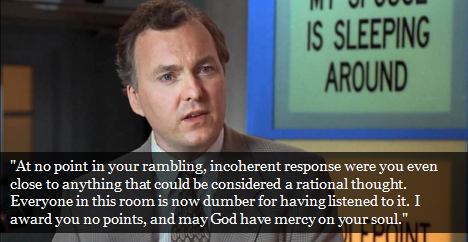Normally I let articles in the mainstream media that are patently incorrect slide by. There’s just too many of them for me to waste my time trying to correct the idiocy that passes for business journalism in today’s world. It seems to be more prevalent with articles that address the psychology of motivation and engagement than in other places. People assume because they know what motivates them, and what engages them, then they are experts on what engages and motivates everyone else.
That simply is not true. Let me say this again: What motivates you has absolutely no bearing on what motivates somebody else. Go back and read that again. And then read it again.
Motivation is extremely personal issue built on all the messiness that’s inside our brains from the time that we are children and reinforced throughout our adult life.
Yet a day doesn’t go by that some freshly minted journalism major will interview someone with a pumped up LinkedIn profile self-proclaiming their expertise in human engagement and motivation, and write about what it takes to drive performance in an organization. It’s like they stepped into the rain and believe they’re the first to have discovered water.
For today’s rant I point you to an article on Inc.com entitled: “5 Reasons You Shouldn’t Praise Employees for Doing Their Job.” I see these articles on a regular basis but this one is so bad I have to comment on it.
Let’s run through the five “truths” this expert believes relating to recognition in the workplace.
First of all the “expert” that this article quotes is not what I would consider an expert in human psychology. The “expert” runs a staffing firm. I checked quickly online – no degree in psychology, no history of running engagement programs, no history of being responsible for employee motivation other than running a company. So let’s start with the baseline of that. Now let’s look at each of his “points” relating to recognition.
#1.: This old saw: salary is a reward in itself.
Of course the expert jumps right to the definitive database for knowledge on psychology and motivation; an episode of Mad Men. He quotes a scene where one of the horrible bosses tells one of his staff that money is how a company says thank you.
For the record: Money is not appreciation. Money is not a reward. Money is openers. That’s what gets people to play the game. That’s what gets people to do the minimum in their job description. To say that salary is a thank you is one of biggest misguided management tropes that I can think of it. If you truly believe salary is how you recognize people you should never have been promoted to manager.
#2.: The second thing he brings up is that recognizing people for doing the bare minimum isn’t good for them.
I’m sorry, when did recognition for doing the bare minimum become the rule? If you are recognizing people for doing the bare minimum, then you’re doing recognition wrong. Don’t assume because other people are doing something incorrectly that that “something” is incorrect. I’ve said this 1000 times. Don’t give a scalpel to a mechanic and ask them to do surgery. The scalpel is simply a tool. If the person wielding that tool isn’t trained than you get bad surgery. Recognition is a tool. If you’re recognizing people for doing the bare minimum you are doing it wrong.
#3.: Unnecessary praise leads to stagnation.
The idea here is that if you are recognizing the bare minimum then people who want to achieve at a higher level have no reason to do so. Again, because you’re using the tool incorrectly doesn’t make the tool bad. See #2.
#4.: Setting expectations and holding people accountable staves off problems.
Why this is even in the article I don’t know. Holding people accountable is not mutually exclusive to recognizing great work. This alone shows the “expert” has absolutely no clue how humans work.
#5.: The last thing said in the article is probably the only thing that has even a modicum of truth… instead of praise, employees need opening frequent communication.
I give this only a ½ right rating… You don’t substitute frequent communication for praise – they can be – and should be – used in conjunction to create a better, more personal employee/manager relationship.
The Expert Has No Clothes
I can only assume what it must have been like growing up in this “experts” house as a child. I’m sure he only recognized his kids when they actually walked. Don’t want to recognize and encourage bare minimum behavior – like when they pulled themselves up on the coffee table. Or, they only recognized and congratulated their child when the kid got a straight “A” report card. I mean, really, there is no reason to recognize C or B performance – you know – the minimum – right?
There is so much wrong with this post and yet it still gets put on in mainstream media.
And I know some manager will bring it to their next staff meeting, wave it around and say…
“See I told you we are recognizing our people too much. We are praising them too much. This is why millennials” are bad for the business because they are just too entitled.”
I can only say this: if you read this article and agree with it, you deserve the employees you have. You deserve the performance they give you. You deserve the turnover you have.
Excuse me now as I need to go take some blood pressure medicine and walk around the block. #SMDH.






July 14, 2016 at 11:01 pm
Reblogged this on Gr8fullsoul.